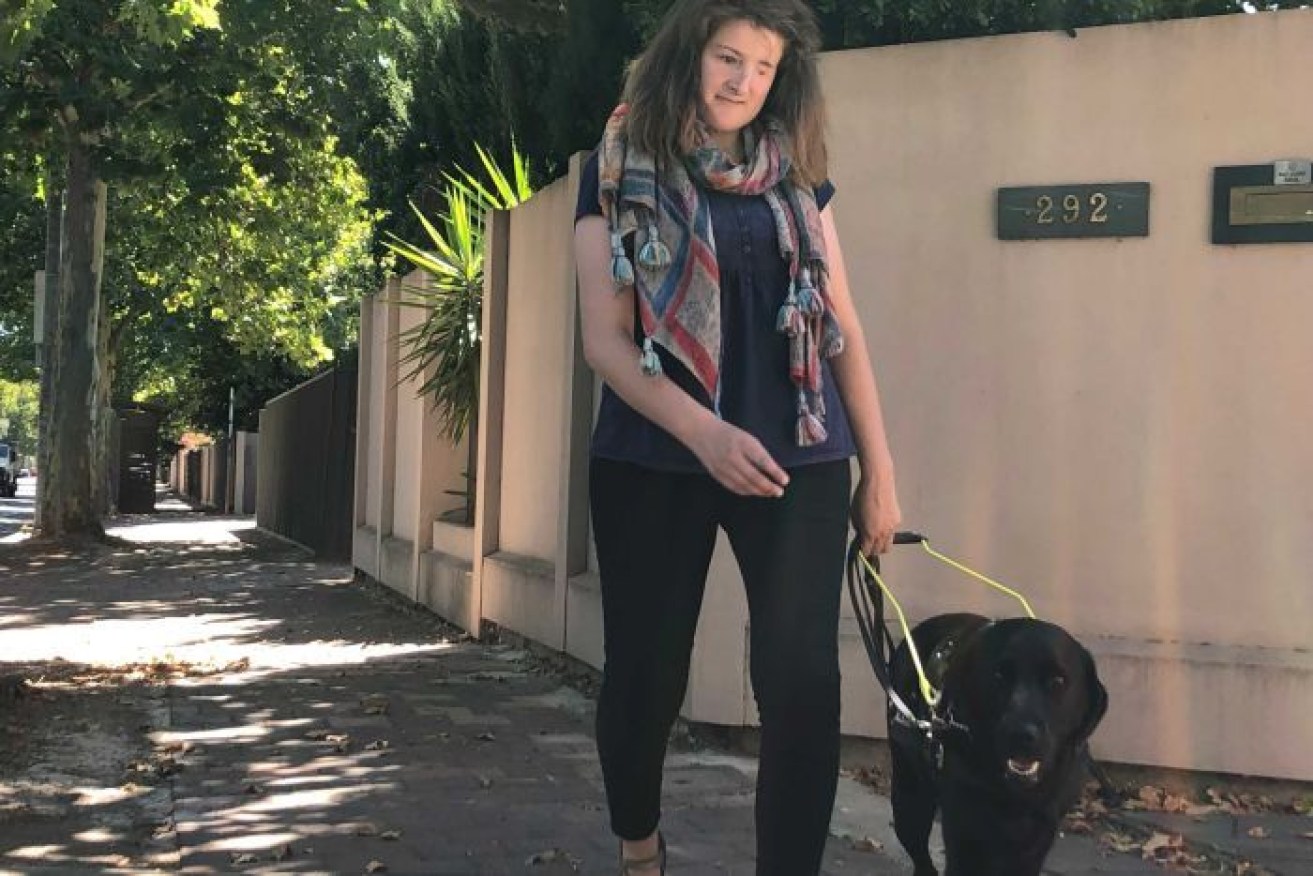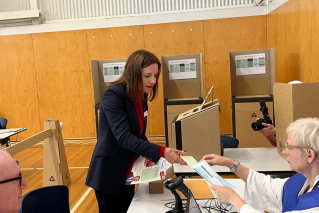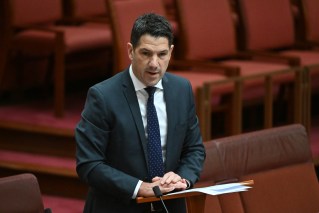Adelaide deafblind woman refused restaurant service

Ellen Fraser-Barbour walks with her guide dog in Adelaide. Photo: ABC
Blind and vision-impaired advocates are calling for a nationalised penalty system for businesses that refuse entry to guide dogs and their owners.
Adelaide resident Ellen Fraser-Barbour, who is deafblind, and her friends were refused service on Sunday night at Vietnamese restaurant Little NNQ, in Adelaide’s CBD, because of her guide dog.
“We walked in and asked if we could have a table to sit [at] and a male server came up and pretty much barred us from going in,” Ms Fraser-Barbour told the ABC.
“He said ‘it’s a dog, it’s a dog, no’.
“I said it’s illegal to discriminate against a working dog and he still said no, as did another server.
“All of these people are looking at me and I didn’t want to cause a scene so in the end I decided to leave.”
The group’s plans ended abruptly and a complaint was made to the Australia Human Rights Commission.
She said she was grateful to a family who decided to leave the restaurant in protest at what had happened.
Restaurant’s ‘mistake’ causes owners ‘much embarrassment’
In Australia, it is illegal to deny entry – or a service – to a guide dog and their user.
In a statement on social media, Little NNQ restaurant said it was a “mistake” and the person in charge that night was “concerned that by allowing the dog entry could compromise the food, health and safety standards”.

Refused service: Inka the dog. Photo: ABC
“The decision made by our temporary manager is not one which we are proud of and is something that has caused our family much embarrassment and upset,” the statement read.
“We do feel responsible having appointed someone into a position of management without the necessary experience and knowledge of Australian legislation.
“We are truly sorry for any offence we have caused and will do everything in our power to ensure that our staff does not ever make such a mistake again.”
Refusals ‘happen all the time’
Ms Fraser-Barbour has only had her guide dog through the Royal Society of the Blind (RSB) for about six months.
However, she said she was shocked at how often she had been refused entry to restaurants, motels, taxis and Ubers – despite telling people it was illegal and showing her identification card.
“This happens all the time,” she said.
“It makes me feel really upset, often when those sorts of situations happen, I often feel that it’s the world against me.
I don’t like making a fuss, and I don’t like getting people in trouble, but at the moment I’m at my wit’s end. This has been the last straw for me.
“This is actually a dog that’s given me a lot of freedom and independence and be much more freer than I used to be before.”
The RSB has called for nationally-consistent rules and regulations on the treatment of guide dogs.
RSB guide dog service manager Lindy Hennekam said it received a complaint at least once a month from clients who had been refused entry, or a service, because of their guide dog.
“It doesn’t seem to reduce, it’s constant, so no matter how hard we try, it seems to always be there,” she said.
“Most places are really good and understanding, but unfortunately, there are still those ones that don’t understand the regulations.
“It is extremely hard for the clients to deal with – it’s their mobility, it’s the way they get out and about, they need to have it to live their life.
“A government campaign would be great to make sure people are aware of guide dogs and that they’re allowed in.”
Ms Fraser-Barbour said there were few repercussions for South Australian businesses who broke the law.
She said she tried to contact police on the night she was refused entry to Little NNQ but was told they did not have the power to act.
Ms Fraser-Barbour has called for SA Police to be given similar powers that are available in New South Wales to give on-the-spot fines to businesses that refuse a guide dog user.
Under South Australian legislation, local councils can issue fines of $210 to a business that refuses entry to a guide dog user.
However, Ms Hennekam said it could be hard if the incident happened after hours.
Call to ‘harmonise’ legislation around Australia
In South Australia, laws around guide dog discrimination fall under the Dog and Cat Management Act.
Dog and Cat Management Board chairwoman Felicity-Ann Lewis said a nationalised scheme was needed.
“We’re very aware that in South Australia this needs a lot more than what is currently offered,” Dr Lewis said.
“We’ve sent many letters about what we call harmonising this legislation around the country to provide a national card and a national scheme.
“That allows a person with a disability to get the accreditation that they can take from one state to the next which currently doesn’t exist.”
She said the board was small and worked with local government money collected from dog registrations, which meant it had limited resources.
“It’s certainly something that has been on our radar but we haven’t been able to get a real sense of engagement yet nationally.”
She said police were often busy with other matters but authorised council officers did have the power to issue notices to businesses.
But she said there was no data collated on how many on-the-spot fines had been issued in South Australia.








